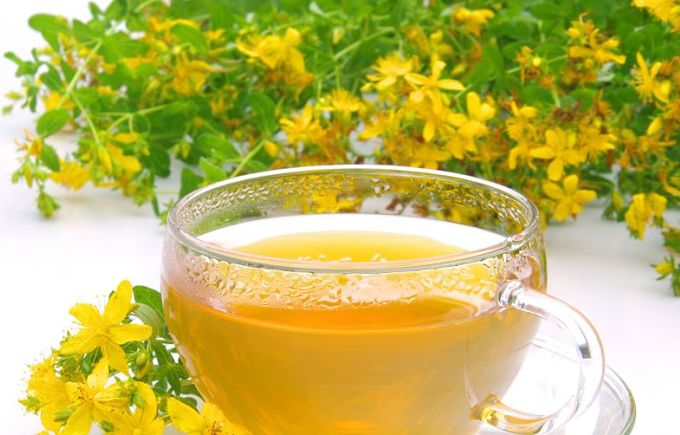You may have heard of St. John’s Wort if you’ve already done some research into herbal remedies for conditions such as stress, anxiety, SAD, and depression. It is one of the most well-known herbal treatments for various mental health conditions, but it does pay to find out more before you start taking it without consulting medical advice first.
St. John’s Wort is actually called Hypericum Perforatum, and contains two main ingredients that are said to help bust depression and those winter blues – hyperforin and hypericin.
You can get your hands on this in many forms. Generally it comes as capsules or tablets that you ingest orally. You can also pop a few drops of the tincture in water to drink, and you can also find it in tea form. You may even find that there are certain products available from health food stores that have this ingredients within it too – keep your eyes peeled.
Now, the topic of St. John’s Wort is a touch one for some as there are things that you CANNOT take alongside the natural supplement. Bipolar disorder sufferers, for example, are made aware that they CANNOT take St. John’s Wort because of the high-low moods it can invoke. In fact, if you have been taking anti-depressants, consult your doctor before taking St. John’s Wort anyway. There are health concerns about the two working alongside each other. You probably shouldn’t take this if you are on oral contraceptives either as it could play havoc with those and reduce their effectiveness.
There are a few side effects that you should probably know about too. Some people reported to have headaches, dizziness, and other side effects when they stop taking the supplement. Whilst taking the supplement, you may find that you suffer from dry mouth, confusion, tiredness, constipation, headaches, and an irritability to bright lights. They do work in the same way as some antidepressants so ideally, when you stop taking them, you should wean yourself off them to avoid negative side effects.
Despite the drawbacks, St. John’s Wort has been shown in some studies to have a positive effect on seasonal affective disorder, depression, stress and anxiety. The hypericum is said to effect the serotonin levels in much the same way as regular antidepressants do just on a more natural level. This is only in cases of mild to severe depression however; the supplement shows no real improvement to very severe and intense cases of depression.
On the other hand, recent studies seem to suggest that St. John’s Wort actually has very little in the way of positive effects on depression, stress and the winter blues. Studies will need to continue before we get definitive proof of any answer to the question – is St. John’s Wort effective in treating depression.
Of course, word of mouth keeps the truth behind St. John’s Wort alive and you’ll be amazed at how many people have found positive results after trying this natural mood lifter. I guess you’ll just need to try it and see if it works well for you! Remember, always consult your doctor before embarking on any treatment![vc_row][vc_column width=”1/1″][vc_cta_button call_text=”Like what you’re reading? Subscribe to our newsletter and make sure you don’t miss our latest posts! ” title=”Subscribe to newsletter” target=”_self” color=”btn-primary” icon=”wpb_mail” size=”btn-large” position=”cta_align_bottom” css_animation=”right-to-left” href=”http://www.beatthewinterblues.info/newsletter-signup/”][/vc_column][/vc_row]


Trackbacks/Pingbacks